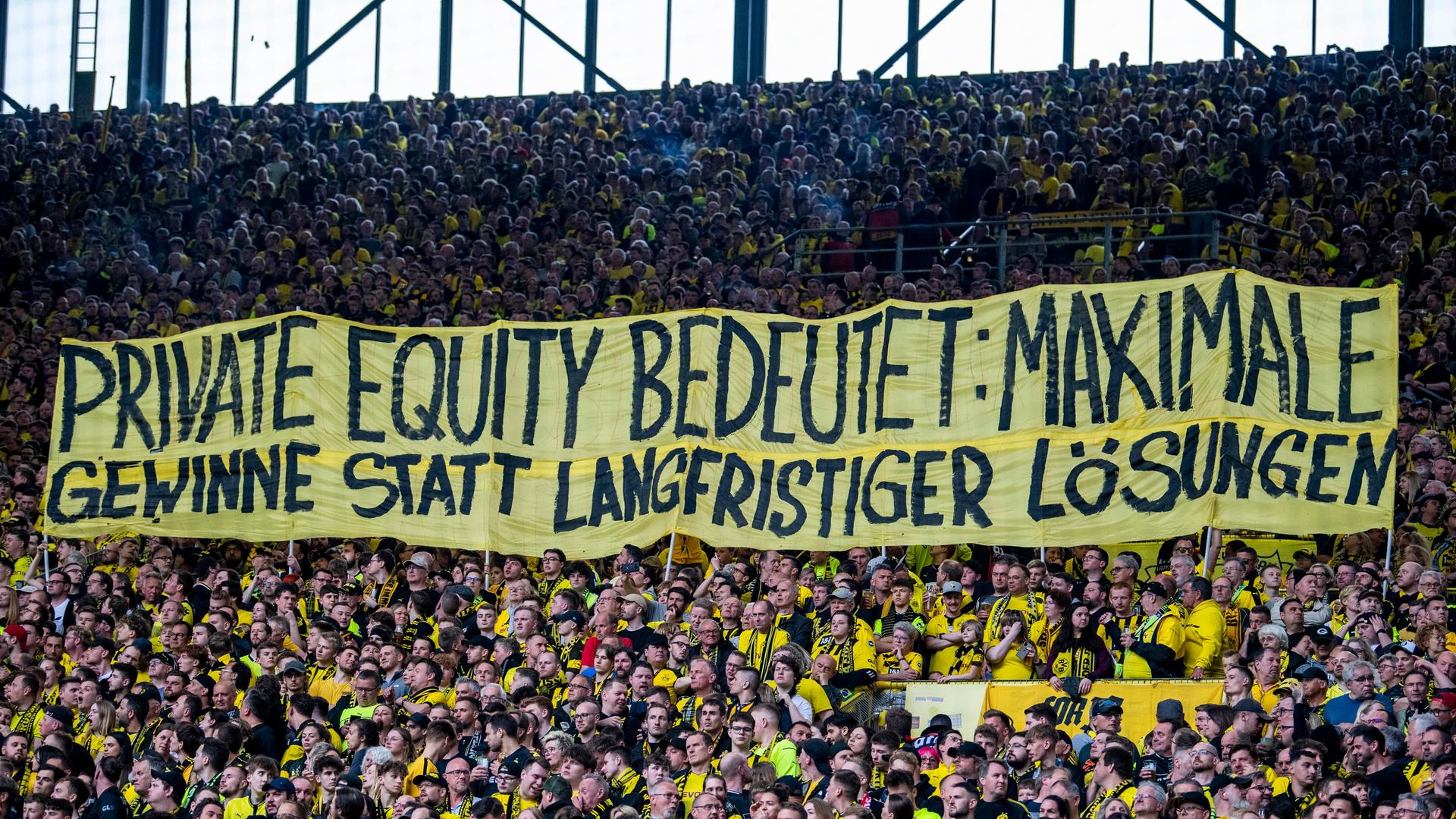The German Football League DFL wanted to collect two billion euros for foreign marketing and was looking for an investor. There were a total of six known applicants: all so-called private equity firms.
But at an extraordinary general meeting of the DFL, the necessary two-thirds majority for the entry of an investor did not come together. 20 of the 36 professional clubs voted in favor of negotiations with an investor, eleven against and five abstained. What did the DLF decide against?
Private equity is one of many ways companies can raise new capital. The fresh money comes from an investor. This buys directly into the company – so it does not give a loan or buy shares in the company.
The “private” does not stand for private – that is, private individuals who give the money. The “private” means that the transaction is carried out directly and privately and cannot be traded on markets. Many private equity deals are therefore not even known to the public.
Part of such a deal is that the private equity investor also secures co-determination and decision-making options in the respective company. Many private equity investors come from the USA. Equity investment companies, funds or companies are often behind it, which are pursuing clear business interests with the participation. The strategies can be different. In contrast to venture capital, which invests so-called risk capital in young companies, private equity focuses primarily on established industries and companies – as was the case recently with the DFL.
Overall, the sports sector seems to be very interesting for private equity deals. According to the economic database Pitchbook, private equity firms invested around 51 billion in sports in 2021. According to Pitchbook, 22 billion flowed to Europe alone.
The main reason for this is the prospect of getting large sums of money quickly. The money does not come from a bank or the financial markets and can therefore flow quickly into the respective company. This in turn reduces dependency on banks. For many Bundesliga clubs, this was also a main argument for the participation of a private equity investor in the DFL. This is how it was, for example, the managing director of Borussia Dortmund, Joachim Watzke, who made a plea against a bank participation. He had already had to carry out his job under the administration of creditors. “I often had to let myself be downright humiliated by creditors and banks in order to get things going again. As a person, I won’t do that a second time, that’s 100 percent clear.”
Even a private equity deal always involves some kind of dependency. Investors are often accused of going into the investment with particularly high, often double-digit, return expectations and of aggressively restructuring the company.
They are also accused of charging high fees for their lawyers. In addition, private equity investors often borrow money from banks – so a dependency can arise indirectly here. The bottom line is that such a deal can have hidden costs and can also become very expensive in the long run.
The vice-president of 1. FC Köln and former fund manager Eckard Sauren was against a private equity stake in the DFL for cost reasons. It would be cheaper if the DFL issued bonds itself and thus got into debt itself. “Borrowing money is much cheaper than the return expected from a private equity company,” says Sauren.
Private equity investors are famous and notorious on the financial market because they often handle very large deals that are not so well known. There is a legendary case in which one of the largest US grocery chains was bought out by a relatively small private equity firm in the 1980s.
There are also cases in Germany, for example Douglas or Toys”R”Us. The so-called locust debate is also very well known – this is how the former SPD politician Franz Müntefering compared private equity firms and hedge funds with swarms of locusts in 2005.
However, private equity investments are no longer a specialty. Bundesliga clubs are also in focus. For example, the private equity firm 777 Partners has been investing in Hertha BSC Berlin since mid-March.
Marcus Wulf, nm
